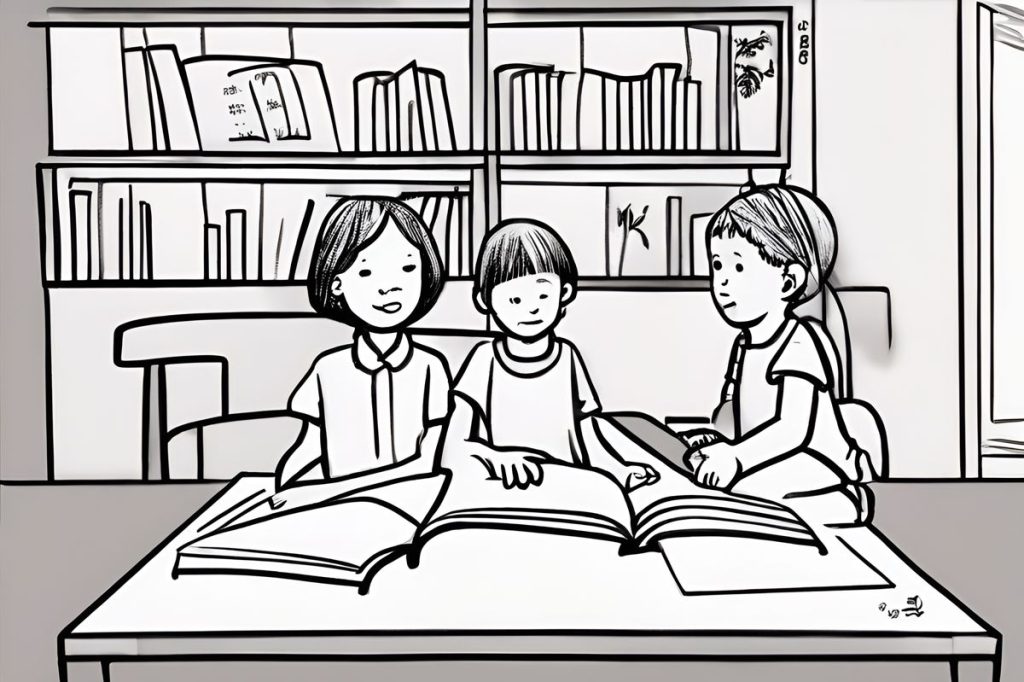Bilingualism thrives in Cyprus with 90% of residents fluent in at least two languages, including languages like French, German, and Spanish. Authors like Elena Joannida and Kevin Brown are creating bilingual children’s books, enriching the island’s linguistic diversity and fostering language learning in a delightful way.
What is the significance of bilingualism in Cyprus?
Bilingualism thrives in Cyprus with 90% of residents fluent in at least two languages. The island’s education emphasizes languages like French, German, and Spanish, which have global importance. Additionally, authors like Elena Joannida and Kevin Brown are fostering language learning through bilingual children’s books, contributing to the island’s rich linguistic diversity.
Language Landscape of the Island
Cyprus stands as a beacon of multilingualism with a staggering 90% of its population fluent in at least two languages, far exceeding Europe’s average. This linguistic prowess is not just limited to the official languages of Greek, English, and Turkish; a multitude of tongues resonate across the island. From Russian to Romanian and Bulgarian, the sounds of diverse dialects fill the air, contributing to a rich tapestry of cultural exchange.
While the 2021 census data is pending, there’s little doubt that the linguistic diversity of Cyprus has evolved. School education might traditionally focus on more common European languages like French, German, and Spanish, but the island’s everyday chatter paints a different story. Here, conversations blend effortlessly, weaving in French’s romantic tones or Spanish’s rhythmic cadences amidst local dialects.
The Global Reach of European Languages
Despite not being as frequently overheard on the island, French, German, and Spanish maintain their global significance. French, for instance, enjoys a prominent position beyond Europe, serving as an official language in a significant number of rapidly growing economies, particularly in Africa. With projections of 750 million French speakers worldwide by 2050, its influence remains steadfast.
Spanish, on the other hand, boasts a colossal community of native speakers, cementing its stature as a global language. Touted as one of the easiest languages to learn, it opens doors to a realm of over twenty Spanish-speaking countries, with cultural and economic ties extending far and wide.
Cultivating Language Through Literature
Amidst Cyprus’s linguistic diversity, children’s authors are finding innovative ways to foster language learning. Elena Joannida and Kevin Brown are authors who have transformed simple bedtime tales into bilingual treasures. Their unique approach involves seamlessly incorporating foreign words within English narratives, allowing readers to grasp new languages through context, a method known as code switching.
Elena’s book, “Meli & Mac: Rendezvous with a Flamingo,” invites young readers on a journey with a French-speaking flamingo, while Kevin’s “Gato, Pato & the Very Small Mouse” traverses through Spanish vocabulary in an endearing rhyme. These books do more than just tell stories; they are gateways to new linguistic adventures, making the learning process both natural and delightful.
As the literary world embraces bilingual contextual storybooks, children and adults alike are exposed to the joys of language in a fresh and engaging manner. The interactive nature of these books aligns perfectly with the island’s everyday code-switching, making them a valuable tool for language acquisition.
Both Elena and Kevin advocate for the joy of learning languages. They believe that such skills should not be a chore but a pleasurable journey that opens up worlds of opportunity. Their commitment to language education reflects a broader societal belief: in our interconnected world, knowledge of multiple languages equates to a wealth of possibilities. Now, with resources like their engaging bilingual books, the seed of multilingualism is being sown early, promising a future where communication knows no borders.
What is the significance of bilingualism in Cyprus?
Bilingualism thrives in Cyprus with 90% of residents fluent in at least two languages. The island’s education emphasizes languages like French, German, and Spanish, which have global importance. Additionally, authors like Elena Joannida and Kevin Brown are fostering language learning through bilingual children’s books, contributing to the island’s rich linguistic diversity.
What languages are commonly spoken in Cyprus besides Greek, English, and Turkish?
In addition to the official languages of Greek, English, and Turkish, Cyprus boasts a diverse linguistic landscape. Residents often speak languages such as Russian, Romanian, and Bulgarian, contributing to the island’s rich tapestry of cultural exchange.
How do French, German, and Spanish maintain their global significance?
French remains a dominant language beyond Europe, with projections of 750 million French speakers worldwide by 2050. German is known for its economic importance in Europe, while Spanish boasts a large community of native speakers and cultural ties across over twenty Spanish-speaking countries.
How are authors like Elena Joannida and Kevin Brown promoting language learning in Cyprus?
Authors like Elena Joannida and Kevin Brown are creating bilingual children’s books that incorporate foreign words within English narratives, making language learning a natural and delightful experience. Their books, such as “Meli & Mac: Rendezvous with a Flamingo” and “Gato, Pato & the Very Small Mouse,” serve as gateways to new linguistic adventures, fostering a love for languages at an early age.

